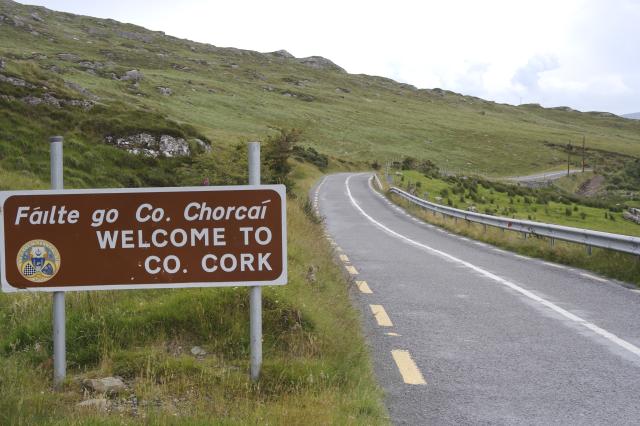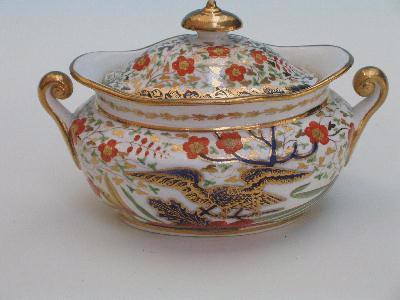Tate's Hell Continued (Part 4)
Read part 1 here; 2 here; and 3 here.
(This is a fictional account of a folk story from my native Florida and (c) 2009 to me.)
Aunt Magdalen was weakening every day. She no longer smelled of violets and lye--and I pitied the odors that she either bore with fortitude or forgot after being so long exposed to them. Her hands were so delicate now, like little birds, shaky and unsure of their use, and she could no longer feed herself. But her voice had lost no strength, only gained it - as if leeching up the sinews and muscles of the rest of her body for a singular purpose. Salvation through confession.
"Jeremiah was a young boy at the time, nearly a man at 12 years. So when he was orphaned to live alone in the swamp, the rest of us thought that if the fevers didn't harm him, he would make out fine for himself. Of course, none of us could risk traveling the five miles out to him. There were more snakes and beasts than you could ever imagine traveling towards Jeremiah's homestead. Tis why no one ever found Old Jack for two years."
Aunt Magdalen motioned for some medicine which had been set aside in a glass for her on the bedside table along with a white powdery substance she was supposed to put on her tongue and drink together. I handed her the packet first and tried to gently tip some of the powder on to her outstretched, pink, dry tongue. Most of it ended up on her lace nightgown and I got a terrible scowl for it. Then her hand impatiently reached for the glass on the table, nearly spilling it until I could bring it to her mouth.
This new intimacy made me so uncomfortable. Would I one day be an invalid? Would someone who didn't like me very much be my caretaker?
"There, that's better. Now, as I say, Jeremiah was left to his own devices for a month or two and no one even saw him at church. But then, again, what could we have expected given his rude behavior at his family's funeral. Surely he didn't have a taste for salvation. What we didn't know until one day when the Wickermans were traveling down the post road, was that Jeremiah had been spending his Sundays with John Fletcher and his friend Josiah Polchowsky. We all knew Josiah and John were very close indeed, some day unnaturally so. And we supposed that it was to be pitied but only fitting that Jeremiah would fall in with those two good for nothing men and their leaning log cabins and dirty rags for clothes.
Josiah mentioned at the general store one day that he had been teaching Jeremiah how to trap birds for feathers to sell in Tallahassee and here in Liberty. He said that Jeremiah was getting awfully good at it and would be able to make a fine living for himself if he kept to it.
Of course my Pa couldn't be ready to get rid of Josiah whenever he visited. He always smelled like a barnyard and flies buzzed around him like he was crock of butter. He frightened the ladies in the store away. And the old gentleman would fidget in their seats on the porch and hold on to their tobacco like they got a gold mine in their cheeks.
Jeremiah must have been doing well for himself because he would come into the store on his own and pay cash, never credit, for his flour and coffee and salt pork. He was a good looking lad with red hair that hung over his eyes. A brown beard was beginning to conquer his cheekbones, and his eyes were so blue they were better than the sky on a summer evening. I am ashamed of how I thought of him then, but that was the truth. I hoped I could bring him back to the Lord and every time he came into the shop, I would ask him whether he was going to go to Church the next Sunday. He would always reply, "I'm sorry Maggie," that's what he called me in that familiar way of his that I was so sinful to be proud of. "I just can't," he says. "I got too much trappin' to do to keep me fed."
Of course we all knew that he was really going to loiter and smoke with John and Josiah. A few months after Jeremiah's parents had died Mary Beth Sanderson saw the three of them on John's front porch when she had to go home early from Church because her stomach had gotten the flux after eating too many red beans the night before. Of course Mary Beth didn't say anything to them and they didn't say anything to her. But we all knew then how things stood. Of course, back then, I was just too naive to believe that once gone bad, someone stays bad."
Aunt Magdalen shooed me away to get some rest and we had a visit from my Uncle Sam who was back from being in the Navy. He had just returned from South America when he got word of "Maggie" he said when he shrugged under the doorway and dropped his heavy coat and carpet bag in the hallway. Of course he dropped himself into the "best" chair and Euphemia's lips disappeared into a thin line of blue when she saw him kick his muddy boots onto the hearth. She mumbled some excuse to get coffee, wringing her hands and wrinkling her nose at Sam's stocking feet. But Sam and I were very good friends. He wrote to me in South America about the steam that rises from the trees and ground like the whole forest is one big tea kettle, and the snakes and lizards are red and yellow and green like colors from a fairy land. And the people, Sam had said, "are the very best kind who will give you their last helping like any of your neighbors here would to a stranger, Clara."
I was the one who had told Sam about Aunt Magdalen, but he and I had agreed to keep that a secret. We were pretty sure she didn't want Sam here at all, since his skin had turned the color of burnt leather and he'd been "living with those heathens and got himsself a heathen wife and might as well be goin' to hell." But he was here now, and after coming all this way, we knew Aunt Magdalen wouldn't turn him away.
"Aunt was telling me about Jeremiah Nabors," I began, carefully putting the tin coffee cup down on the table. It was still too hot to drink and Euphemia had hoarded all the sugar near her tray. She looked up from her sewing then, clearly interested in what her mother had been saying to me all this time. I figured, this was one way to appease her curiosity and end some of that bitterness between us and another way to find out more from Sam.
"Ah," Sam said carefully. "Well, Maggie and I don't agree about poor Jeremiah." I'd only met Sam once when I was five before he wrote to me, being his first niece or nephew of any kind. I thought I knew him so well from his letters though and it was strange to see him so reserved now in person.
"You see, our Pa thought Jeremiah was a bad soul and Maggie and he disagreed a lot on whether Jeremiah could be salvaged into something they thought resembled a Christian. Of course, Jeremiah and I were friends for a little while before my Pa found out and forbid me to see him. But every once in a while Jeremiah would leave me a feather or a rock or a seashell on my windowsill and I would leave him some rock candy or something else we liked as children from the store. Eventually, we stopped exchanging presents and I got caught up with helping my Pa run the store and Jeremiah got caught up with his trapping and John and Josiah. I only saw Jeremiah rarely and we would just say hello to each other on the street like everybody else does." I could tell there was something more Sam wanted to say, but he spent a lot of time packing his pipe, lit it, and began smoking as if his story naturally should end right where it did.
Fortunately, Euphemia didn't like the smell of the smoke and made some excuse to go check on Aunt Magdalen. When she was gone Sam popped out his pipe and leaned in toward me.
"As we got older though, around 16, Maggie got more and more impatient to change Jeremiah. She even gussied herself up one day in this yellow dress and hat. She marched up to Jeremiah in the middle of the street and said 'You gotta marry me Jeremiah for your soul to be saved!' And well, Jeremiah everyone knew was only interested in birds and feathres and snakes and smoking on his pipe. He couldn't have wanted a wife and Maggie is about as sweet on the inside as she is on the outside. He said something like 'I'm sorry Miss Maggie, but I really can't afford a wife. But if I could, that would be a real generous offer indeed.' Well, Maggie threw the wildflowers she'd been clutching, near wilted now, right at Jeremiah. and ran away crying.
Everyone saw it. I still never know what possessed her to make such a public fuss about it. Maybe she thought she could pressure him into it, with everyone else looking on like getting married was the right thing to do--" Sam sat bck in his chair and only moments later Euphemia came bustling back into the room and sat down at her sewing.
She eyed us for a bit to see if she'd missed something, but Sam just started humming "Amazing Grace" and I smiled and sang along.







